PhD in Communication Studies
Our communication studies PhD program prepares you for a successful career in both post-secondary teaching and research. No matter which concentration you choose, this program emphasizes the connections between sub-fields of communication.
Students may apply to the PhD program with a bachelor's degree or a masters. All accepted to the program receive five years of full funding support . We make every attempt to provide all of the support necessary for our students to enroll in a timely fashion, complete their degrees, and gain meaningful academic employment. Transfer credits for equivalent graduate-level work will be accepted.

An Overview of the Five-Year Program
The integrative five-year plan allows for coordinated and staged development. However, students entering with an MA in communication studies might be able to truncate the program and finish in a total of four years, if they so choose.
In your first year, you will join your cohort in taking an introductory seminar and all students attend the departmental Research Colloquium (COMM 8000). The First-Year Seminar (COMM 8101) introduces students to the discipline—including central concepts, theory, and debates that cross-tracks—and provides an introduction to essential aspects of graduate-level scholarship. In the first year, you develop the skills for specific milestone-oriented work to come, such as how to write a quality literature review, articulate a research question, and methodological design.
In your second year, you will continue to take courses in the department and in affiliated departments related to your specific research interests. By the end of the year, you will write a publishable literature review that demonstrates a high level of competence in your field of interest.
During the third year, you will complete remaining coursework and prepare three “field statements.” These take-home papers serve as written preliminary examinations and demonstrate advanced knowledge in:
- your major field of study (e.g., critical media studies, rhetoric, interpersonal communication)
- your chosen subfield (e.g., materialist rhetoric, family communication, environmental communication, etc.)
- and the final statement is a detailed syllabus that includes your pedagogical philosophy and orientation to teaching in your field or subfield. These are followed by an oral exam after which you are advanced to candidacy to write your dissertation.
After a funded summer producing your dissertation prospectus, your final two years are dedicated to dissertation research and writing. One of several benefits of having two years to complete the dissertation is the ability to apply for grants, fellowships, and jobs without having to do all of that in a single year.
Critical Media Studies
Critical media studies approaches mediated communication as a cultural phenomenon, emphasizing media that are socially influential, economically powerful, and politically significant. Drawing from multiple fields of inquiry, faculty offer courses where students can explore the dynamics of race and gender in representation, political economy of media, feminist criticism, environmental communication, poitical communication and popular culture. Students are encouraged to pursue studies of a wide range of media phenomena, from historical studies of media controversies to contemporary explorations of social media and other new technologies.
Rhetorical Studies
Rhetorical studies includes rhetorical criticism, rhetorical theory and public address, mass media criticism, and the history of public address. Faculty teach courses with a focus on social movements, crisis rhetoric, public policy and civic organizations, and feminist and critical theories. Students are encouraged to work across disciplines and methods as they pursue their intellectual interests.
Interpersonal and Organizational Communication
Interpersonal communication focuses on social scientific research in communication studies. In addition to taking courses in communication theory, research methods, and statistics, students focus on relational communication, marriage and family communication, social support, mindfulness, small group communication, as well as power and communication within organizations. Students are expected to have a proclivity toward quantitative reasoning and statistical training upon entering the program and will advance their quantitative skills and statistical knowledge through coursework and directed research.

College Resources for Graduate Students
Visit CLA’s website for graduate students to learn about collegiate funding opportunities, student support, career services, and more.
Student Services Career Services Funding & Support
Search form

- Join / Renew
- Find / Post Job

NCA's Doctoral Program Guide

About the Doctoral Program Guide
The Doctoral Program Guide is designed to provide timely and useful information about doctoral programs in Communication for students, prospective students, and other interested parties.
Which Programs Are Listed? Many doctoral programs are included in this guide, all of which offer a Ph.D. degree in some area or field of the Communication discipline. We began with the programs that have traditionally been ranked or evaluated as doctoral programs in Communication by other sources and added a number of new programs.
For doctoral programs in related areas of study, visit the following:
- American Library Association's Accredited Programs page
- American Society for Theater Research's Doctoral Program Directory
- American Speech & Hearing Association's EdFind
- Association for Education in Journalism and Mass Communication's Graduate Student Info page
- Modern Language Association's Guide to Doctoral Programs in English and Other Modern Languages
- Public Relations Society of America's Higher Education Programs Online Directory
What Information Can Be Found in the Guide?
All information presented in this guide is publicly available on the individual department or program website and/or in other published sources. Each university is identified by its Carnegie Classification , its membership in the Association of American Universities , and by the number of doctorates it has conferred from 2010 to 2019, according to the National Science Foundation's Survey of Earned Doctorates . The guide provides the areas of study of each program, the admissions requirements for each program, a listing of each program's graduate faculty, and contact information. In addition, we also recognize a program's recipients of NCA Awards from 2000 to the present and synthesize and report on the programs' standing in a series of different rankings/ratings, including:
- The university's 2019 ranking in the Communication & Media Studies category of the QS World University Rankings . (Note: this ranking includes 200 universities; the first 50 are individually ranked, followed by category rankings for the remainder.)
- The university's 2019-2020 ranking in the "Language, Communication, and Culture" category of the University Ranking by Academic Performance measure.
Explanation of Areas of Study
Most doctoral programs in Communication indicate research areas or special research concentrations. Such areas are usually based on the types of research conducted by the faculty members in the program, as well as by the courses offered toward the graduate degree.
A program is listed within a specific research area based entirely upon its self-identification of research focus. Because the identification and labeling of research foci vary so greatly across programs, this list groups and categorizes research areas according to commonly understood labels. Thus, a given doctoral program may identify its research specialty as "media economics" or "media studies" or "media effects." That program would be included in the broader category below of "Mass Communication/Media Studies."
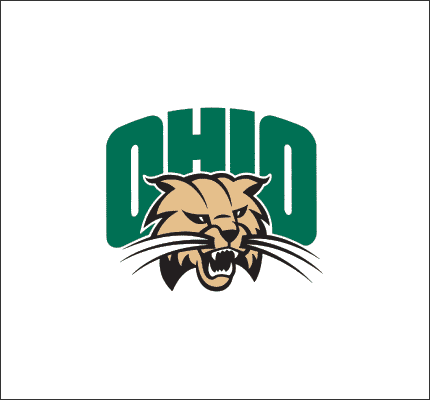
Ohio University, School of Communication Studies
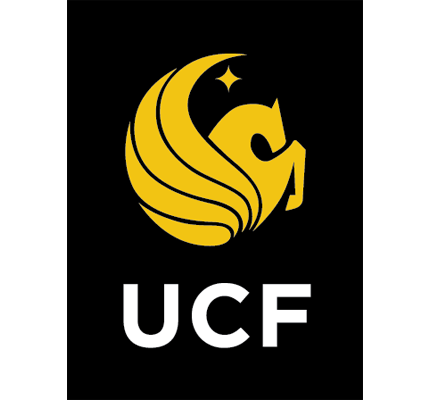
University of Central Florida, Nicholson School of...
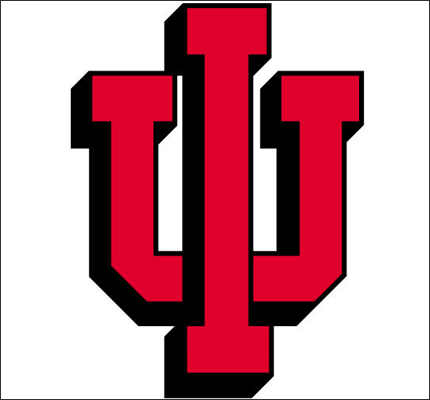
Indiana University, The Media School
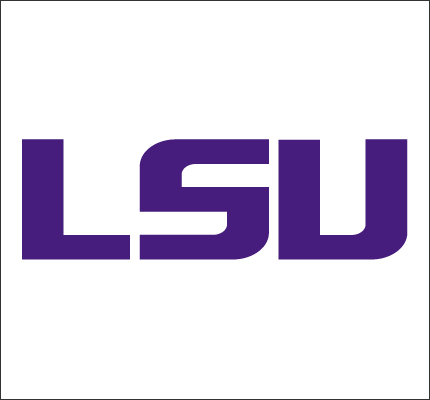
Louisiana State University, Department of Communication...
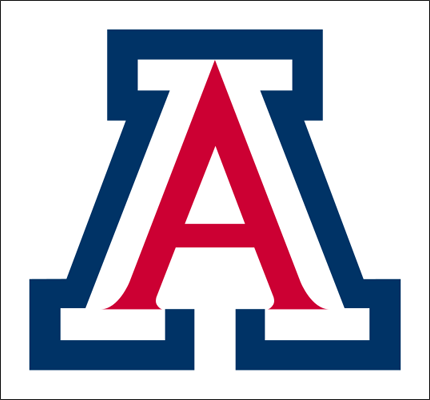
University of Arizona, Department of Communication
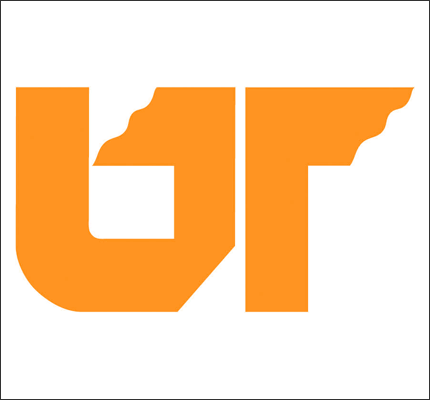
University of Tennessee, School of Communication Studies
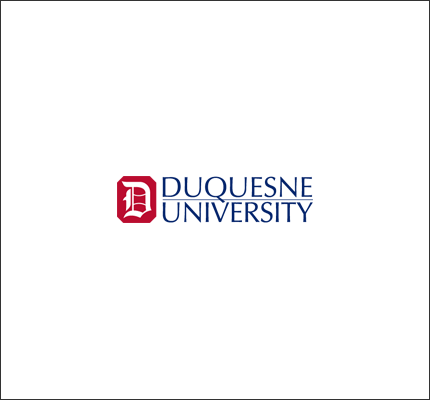
Duquesne University, Department of Communication &...
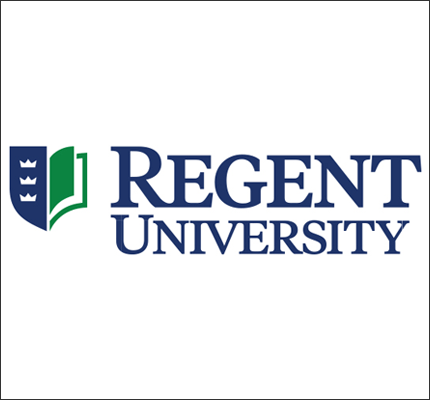
Regent University, School of Communication & the Arts
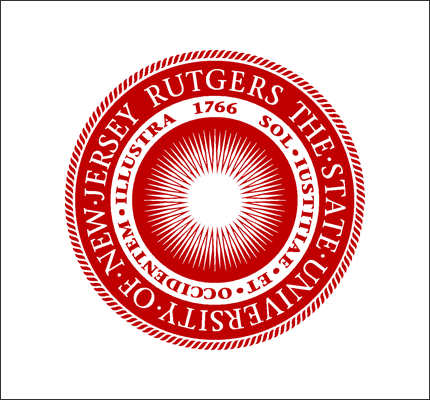
Rutgers University, School of Communication & Information
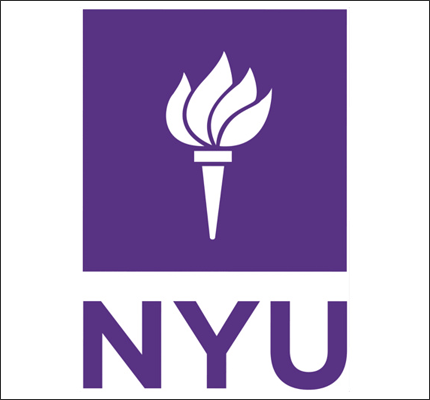
New York University, Department of Media, Culture &...
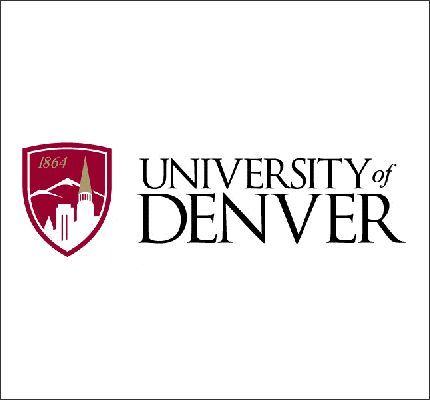
University of Denver, Department of Communication Studies
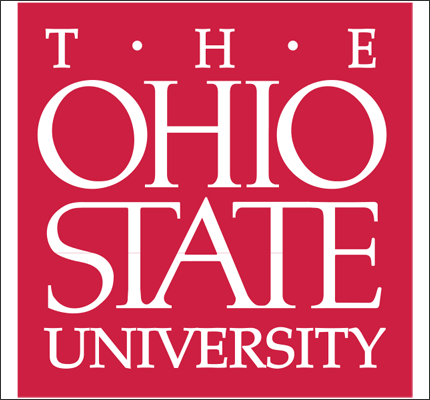
Ohio State University, School of Communication
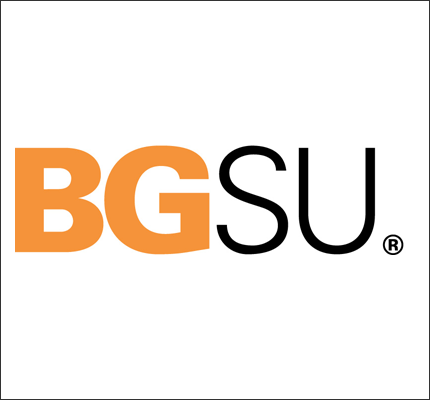
Bowling Green State University, School of Media and...
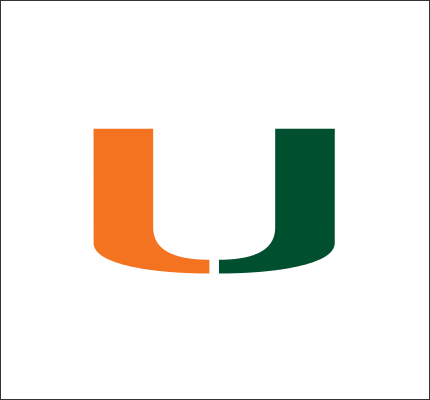
University of Miami, School of Communication
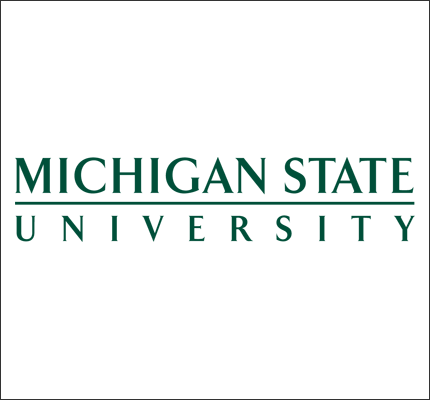
Michigan State University, Department of Communication
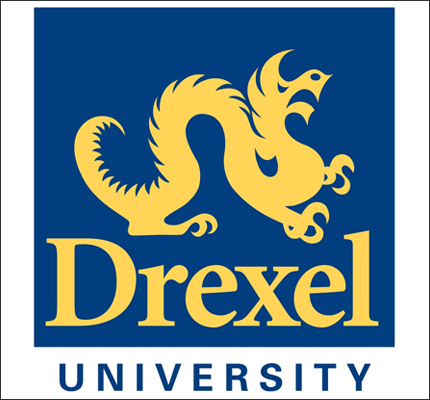
Drexel University, Department of Communication
PhD in Communication
Doctor of philosophy in school of communication.
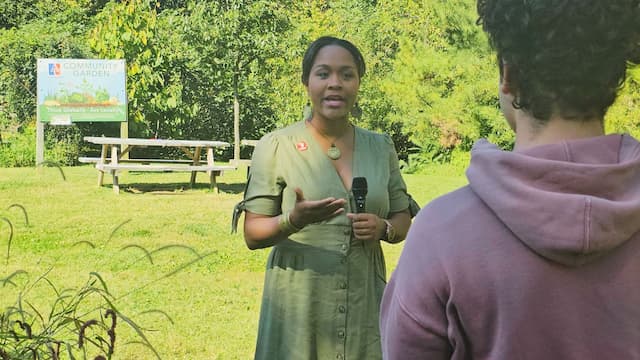
- Request Info
Explore More
(202) 885-2040
McKinley Building, Room 111 on a map
Back to top
At the Intersection of Media, Technology, and Democracy
The AU School of Communication's Doctor of Philosophy in Communication allows you to research at the intersection of media, technology, and democracy. We study how media and technology interact with democratic culture and politics. Communication creates culture; communication is a vector of power; communication is central to democratic action. Our normative orientation toward a healthier democratic process is a theme consistent with the core public service mission of American University. Internet governance, podcasts as news sources, disinformation on Twitter, digital surveillance, facial recognition and power, racism on social media, and state social-media propaganda are all topics of recent dissertations.
Our focus is at the cutting edge of the field of communication studies today, and our students routinely present at our leading conferences. Our approach is also interdisciplinary, and we benefit from the diverse intellectual resources across American University, such as those showcased at the Internet Governance Lab , the AU Game Center , the Center for Media & Social Impact , the Center for Latino and Latin American Studies , and the Institute on Disability and Public Policy (IDPP) . We also tap into our relationships with NGOs, media companies, foundations, and government institutions throughout the Washington metro area.
In our doctoral program, you'll produce scholarship, using both quantitative and qualitative approaches, that has real-world connection and impact . Your work will position you well to pick from career options that range from the professoriate to public policy research to media production to government.
This is a three-year PhD, and from the moment you arrive, you will be working in a highly-structured program toward your dissertation research, building your networks, and developing publishable projects. You will join us in using knowledge to address our most pressing political and social challenge s . We welcome your application to become a part of the next generation of communication scholars, professors, leaders, and practitioners.
Demonstrate Your Commitment and Interest
Applicants for the Communication (PhD) degree program must hold an accredited bachelor's degree and a master's degree in communication, or a related field, with a cumulative GPA of 3.30 or higher, unless the applicant demonstrates comparable experience. The degree does not have to be in the field of communication or be research-based, as many of our PhD students have master's degrees in film or journalism.
Applicants must submit a statement of purpose that outlines the intended research area, what research methods and theories the applicant will use, and which faculty members the applicant hopes to work with.
The candidate must also submit either a master's thesis or another example of substantial research. The GRE is optional. Students should submit their official GRE scores to CEEB code 5007 if desired.
The School of Communication's PhD program operates on a hard deadline. Applications must be received by December 15th. Applications received after the deadline will not be considered.
A complete PhD application consists of the following:
- Statement of purpose
- University transcripts from all universities attended (transcripts from outside of the U.S. must be evaluated by a NACES approevd organization)
- Two letters of recommendation
- GRE scores (optional)
- Master's thesis (or another example of substantial research)
- Proof of English proficiency (100 on the TOEFL, 7.0 on the IELTS, 120 on Duolingo, or a bachelor or master's degree from a university in an English speaking country)
The admissions committee may ask applicants to interview with the program director and affiliated faculty. Interviews are conducted either on campus or virtually.
Financing Your Education
Each year, we welcome several doctoral students with full tuition remission as well as a graduate assistantship . We may also offer admission to top candidates without merit funding. If funding becomes available, students admitted without funding may be eligible to receive a merit package from the school.
The PhD in Communication is 54 credit hours. To estimate the cost of tuition , please see the current cost per credit hour for graduate students.
Students whose funding package includes a graduate assistantship will work as research or teaching assistants for 20 hours per week during the fall and spring semesters.
The School of Communication offers graduate students both merit-based and need-based financial aid . Merit awards, named scholarships, and fellowships are administered by the SOC Graduate Admissions Office, while need-based awards are administered by the American University Office of Financial Aid . Several prestigious graduate fellowships are also available for students in the Political Communication program. Additional financial support is available for veterans .
Each year, we welcome several doctoral students with full tuition remission as well as a graduate assistantship. We may also offer admission to top candidates without merit funding. If funding becomes available, students admitted without funding may be eligible to receive a merit package from the school.
All merit awards are based on your academic merit and professional experience , specifically your undergraduate grades and leadership activities as well as career-related accomplishments. Merit awards are valid for one year-they vary in amount, are typically divided evenly between the fall and spring semesters, and are not typically renewable.
Some merit awards come in the form of graduate assistantships , which consist of graduate tuition remission, a stipend, or both. Tuition remission will vary in the number of credits offered. If you are offered a stipend, you must employed as a graduate assistant for a School of Communication faculty member for 10 hours per week.
Graduate Fellowships for Political Communication
The School of Communication offers prestigious merit-based fellowships in partnership with leading Washington, DC-based media organizations. These fellowships provide varying amounts of tuition remission and stipend and allow you to pursue professional projects with some of the finest media organizations while completing your graduate program. Separate applications are required .
Research fellowships at academic centers within the School of Communication and throughout the university may also be available.
Unless indicated, students may not accept both a graduate assistantship and a graduate fellowship.
Advanced Study at Your Convenience
The School of Communication makes continuing on for your advanced degree a simple, straightforward process. You may apply for admission to our combined bachelor of arts/master of arts program during the second semester of your junior year (after completing 75 credits, but before you have completed 90 credits). Students in any undergraduate major at AU are eligible for consideration. An undergraduate degree in communication is not required.
You may apply for combined degrees in Political Communication, Strategic Communication, Film and Video, Journalism and Public Affairs, Game Design, or International Media.
More information about admissions requirements can be found here.
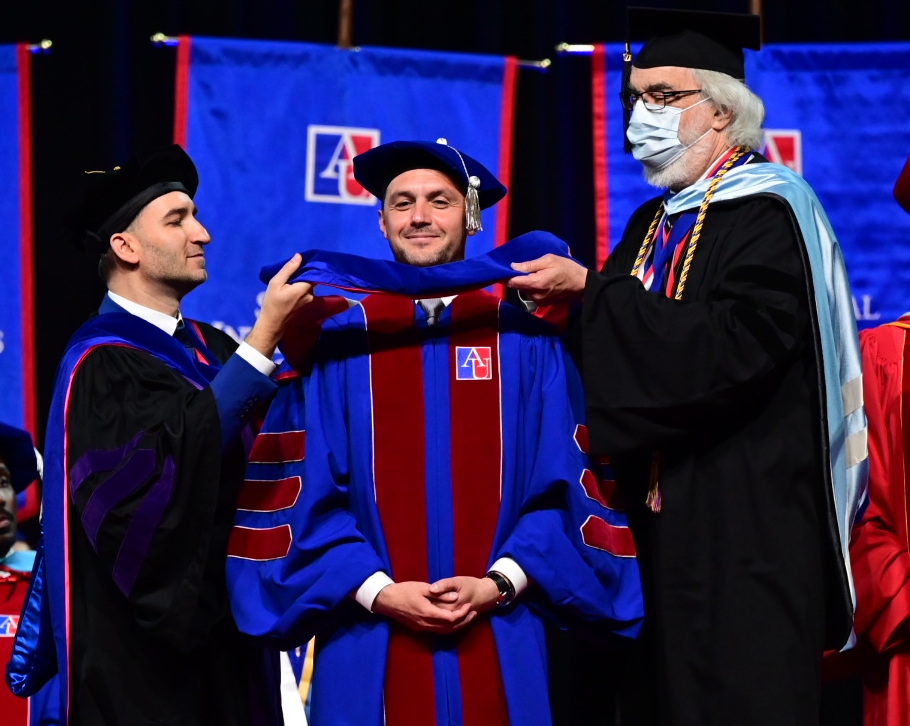
Meet Our Students
Our students produce scholarship, using both quantitative and qualitative approaches, that has real-world connection and impact.
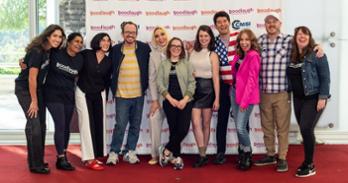
Democracy is a Laughing Matter
In the Top 5 percent of Best Ranked Programs in Communication and Media Studies
According to College Factual
Course Progression
Complete your degree in three years.
In contrast to the traditional 9-month-per-year schedule, your annual course of study takes place over 11 months, including faculty supervision and mentoring via formal course work, organized research group meetings, and online collaboration. The accelerated structure of your program allows you to complete your degree in three years.
You'll take six required courses, three each in the fall and spring semester. Depending on your past master's coursework and professional experience, you may be able to petition for credit for methods and/or statistics course work, substituting an advanced methods course or other elective. The required teaching seminar prepares you to work as a teaching assistant in an undergraduate course during your second year of coursework. Students who have prior college teaching experience or who have already taken a similar teaching seminar as part of their master's program can place out of this course, substituting an additional elective. In the summer immediately following your first year, you'll enroll in one course for credit and participate in research group meetings.
COMM-704: Media, Technology & Democracy (3) This is a foundation overview course focused on scholarship and analysis concerning the intersections of media, technology, and democracy. It also introduces other core courses and study concentrations for advanced study in these topics.
COMM-750: Advanced Media Theory (3) This course examines a range of theories for explaining the complex interrelationships among media, technology, human behavior, social interaction, and democratic processes. It provides an in-depth comparative analysis of theoretical approaches from a variety of academic fields including mass communication, cultural studies, film criticism, and digital media.
COMM-751: Advanced Media Research Methods (3) This course covers major social scientific, historical, ethnographic, qualitative, and critical approaches to media research, including discussions of epistemology, conceptualization, measurement, and ethics.
COMM-754: Media, Law & Policy (3) This course equips students with a strong grounding in U.S laws, policies, and regulatory infrastructure. It analyzes how public debates and political struggles over policy issues have shaped the culture, structure, and operations of contemporary U.S. media industries and institutions.
COMM-711: Teaching Seminar (3) This course provides students with career preparation knowledge, including understanding the culture and history of higher education, teaching skills, and career skills including submission to journals, book proposals, finding appropriate job opportunities, writing cover letters and doing job interviews. Some individual coaching is also involved.
NOTE: This course begins the Friday BEFORE school starts in spring semester, with attendance at an all-day event, the Ann Ferren Conference. This affects your travel schedule over winter holidays!
Approved graduate statistics or research methods course (3) (by preference) OR
Elective selected in consultation with faculty mentor (3)
Note: Students will work with their faculty mentor, who must have an appropriate terminal degree, to select two electives for the first fall semester.
COMM-755: Research Design in Communication (3). This course strengthens student skills in defining an answerable research questions and finding appropriate methodologies.
In the fall, you'll take two electives and a course to prepare you for the comprehensive examinations. By the end of your fall semester, you'll be expected to have gained approval and to have finalized the four faculty members of your doctoral committee, with at least one member being from outside of the School of Communication. At the beginning of your spring semester, you'll begin your qualifying exams. This process takes approximately one month from the assignment of questions to a successful written and oral defense. You will also take a seminar to guide you in developing your dissertation proposal. By the end of the spring semester or beginning of the summer, students are expected to have successfully defended their dissertation proposals and to spend the summer focused on dissertation research.
COMM-860 Seminar in Doctoral Teaching and Research (3) Creation of dissertation literature review and preparation for the comprehensive exam. Introduction to teaching philosophies and strategies, preparation for scholarly career in Communication Studies.
Approved elective courses (6)
Approved graduate statistics or research methods course (3)
COMM-861: Advanced Research & Project Development (3) Prepares students for advancing to candidacy by taking the comprehensive exam and preparing a dissertation proposal.
COMM-898: Doctoral Continuing Enrollment (6) May be taken by doctoral students completing coursework, exams or proposals in preparation for advancement to candidacy.
In the fall and spring semesters, you'll register for dissertation research credits. During the fall and spring semesters, you will also probably be applying and interviewing for jobs, drawing upon information from your first-year course, COMM 711 and on your mentors’ advice. By late spring, your dissertation committee expects to have about six weeks to read and respond to a dissertation draft and to read and respond to a revised version.
Frequently Asked Questions
Who should apply to the phd in communication program.
Applicants could be interested in tenure track, faculty positions in academia, or seeking careers at prestigious institutions in government, industry, and/or the nonprofit community.
How can the PhD program help strengthen my pedagogical skills?
In addition to the teaching seminars and teaching assistantships that are part of the regular doctoral curriculum, The Art of Teaching is a one-credit course offered each spring semester for PhD students who want to learn more about educational pedagogy. The course was originally designed by American University's former provost, Milton Greenberg.
Previously known as the Greenberg Seminars for Effective Teaching, this course complements the PhD academic experience, providing hands-on, practical introduction to professional development and classroom techniques. PhD students can participate at any time during their PhD program. There is no tuition fee for the course.
What are areas of faculty expertise?
Our program is focused on impactful research at the intersection of media, technology, and democracy. Our faculty and students study how media messages and communication technologies shape, and are shaped by, social and governmental processes. Specific sites of research range from Internet governance to music and film culture to social and political organizing to journalism to new media and games. We study communication patterns and their meanings across and between societies on a global scale, including, every continent in addition to indigenous and stateless groups. We draw upon cultural production, critical communication, science and technology studies, law and society perspectives, and other theories, and we use both quantitative and qualitative research methods as well as policy analysis.
What kinds of positions do alumni have now?
Our alumni have found full time and tenure-track jobs at universities throughout the U.S. and around the world, as well as prestigious post-doctoral positions and non-profit and government posts.
What kinds of collaborations can I expect with faculty?
You are assigned a mentor when you first arrive, a selection that results from both your stated interests and faculty interest. This assignment can change by request. You can expect to work with your mentor and, potentially, other faculty on research resulting in joint publications and conference presentations. In your second year, you may assist a faculty member with teaching. Several recent alumni have continued to collaborate with SOC faculty and student colleagues after graduation, resulting in dozens of published research articles, book chapters, and policy papers.
What other opportunities do the school and university offer?
The PhD program offers several PhD Symposia throughout the year, offering informal presentations of completed work and work in progress by both students and faculty. The Internet Governance Lab , a joint program in the School of Communication and School of International Service, offers a range of activities throughout the year, putting a spotlight on Internet policy. The Center for Media & Social Impact offers workshops, events, a biannual conference, and research projects for which you can apply as research assistant. The AU Game Center provides a community of scholars and graduate students in numerous programs across the university engaged in the design, production, and study of games, including the cultural and social impact of the medium, with substantial opportunities for collaboration with faculty, staff, and students across multiple related fields and contexts. The Institute for Immersive Designs, Experiences, Applications, and Stories (Institute for IDEAS) offers paid fellowships and research projects for which you can apply as a research assistant, often collaborating with faculty at other institutions. The PhD programs in the School of Communication, School of International Service, and School of Public Affairs jointly host a day-long research conference featuring work in progress by their PhD students, in February. The university-wide Center for Teaching, Research and Learning (CTRL) provides tools and programs throughout the year to help faculty and PhD students with best practices in teaching, and hosts an annual conference on teaching in January. PhD students are welcome, at no cost. CTRL also offers training and access to research tools . Finally, each PhD student receives enough annual funding to attend at least one major scholarly conference or event, anywhere in the world.
What are examples of dissertations students have written?
Our students have explored a wide diversity of interests with rigorous research, including dissertations such as:
- Lucy Odigie, “Digital Margins: Digital Technology Use, Social Change and the Empowering Strategies of Domestic Workers of Color in Brooklyn, NY”
- Isabelle Zaugg, “Ethiopic: Coding for Linguistic Survival in the Face of Digital Extinction”
- Aras Cosuntuncel, “Networking Authoritarian Neoliberalism: Realigned Strategies of Information Control and Resistance in the Case of Turkey” Dorian Davis, “The Twitter Election? New Perspectives on Agenda-Building during the 2016 Campaign”
- Louisa Imperiale, “Democracy for Sale: A Critical Examination of the Political-Media Complex at work in Campaign Finance and Political Broadcast Regulation in U.S. Presidential Elections from 1976 to 2016”
- Fernanda Rosa, “Global Internet Interconnection Infrastructure: Materiality, Concealment and Surveillance in Contemporary Communication”
- Donte Newman, “Straddling the Fence: How White Facebook Users Express Ambivalence to Navigate the Context Collapse”
- Emily O’Connell, “Hybrid Systems and Hybrid Genres: Exploring U.S. Political Podcast Framing Tactics and Effects”
How many applicants are admitted each year?
Five people are selected each year to join the program, and there are usually about 20 people in the program at any one time.
Can I attend part-time?
The program is designed to be full-time.

Can I take courses outside of the School of Communication?
The SOC PhD program was designed as an interdisciplinary program. We encourage students to take full advantage of the wealth of resources and opportunities across the university, including taking courses and finding expertise in other departments, as well as courses at our partner universities around Washington, DC. Dissertation committees are required to include at least one member outside of the school.
Can I complete my PhD program in 3 years?
The program is designed to be completed in three years, and more than half of our PhD students accomplish their goal in doing so.
Still have questions? Send us an email: [email protected]
Please send me information about PhD in Communication
It looks like you already used that name and address to request information for one or more AU graduate program(s).
If you have not previously requested AU graduate program information, create a new request

Doctorate in Communication
With one of the nation's premier doctoral programs in Communication, the Annenberg School is a tight-knit, supportive community of scholars committed to advancing knowledge of our media environment.
Founded through the generosity and vision of publisher, diplomat, and philanthropist Walter Annenberg, the Annenberg School for Communication is devoted to furthering our understanding of the role of communication in public life through research, education, and service. Our five-year doctoral program has a strong reputation as one of the best in Communication, based on Annenberg’s unparalleled combination of world-class faculty , students , and alumni , as well as access to the larger intellectual and cultural resources of the University of Pennsylvania and Philadelphia .

In an inherently interdisciplinary field, Annenberg researchers are engaged with a spectrum of topics related to health, politics, media systems, networks and digital culture, journalism, race and gender, and more, using both qualitative and quantitative methodologies.
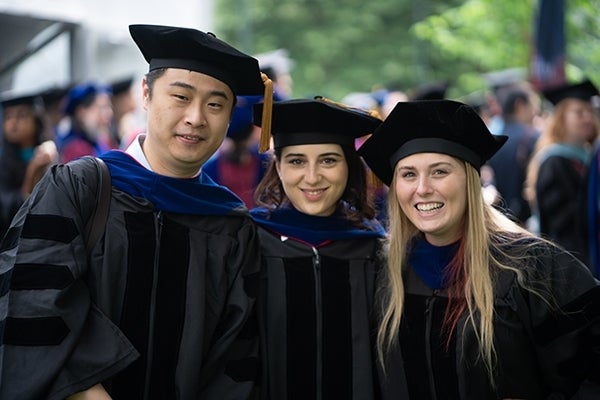
Our Ph.D. program allows students to tailor a curriculum to suit their specific interests, and provides them the financial resources to launch their academic career.
In addition to a full tuition waiver, our students currently receive an annual stipend as well as a budget for research and travel and health insurance for all five years.
Annenberg is the smallest of the 12 schools at Penn, and it functions as close-knit community of scholars whose doors are always open to one another. Our students also appreciate our staff , who routinely go above and beyond to support them.
Please note that we do not have a standalone master’s degree program at this time. All students are admitted directly into the doctoral program.
Request for More Information
Our Students By the Numbers
Here are some fast facts about our students and the admissions process . Get to know Annenberg!
Students currently in the program
Different nationalities represented by our students, applicants each year, students accepted each year, average undergraduate gpa of applicants, average toefl of admitted candidates, of students came from a previous graduate degree program, of students worked in a career before joining annenberg, of students came straight to annenberg from an undergraduate degree.
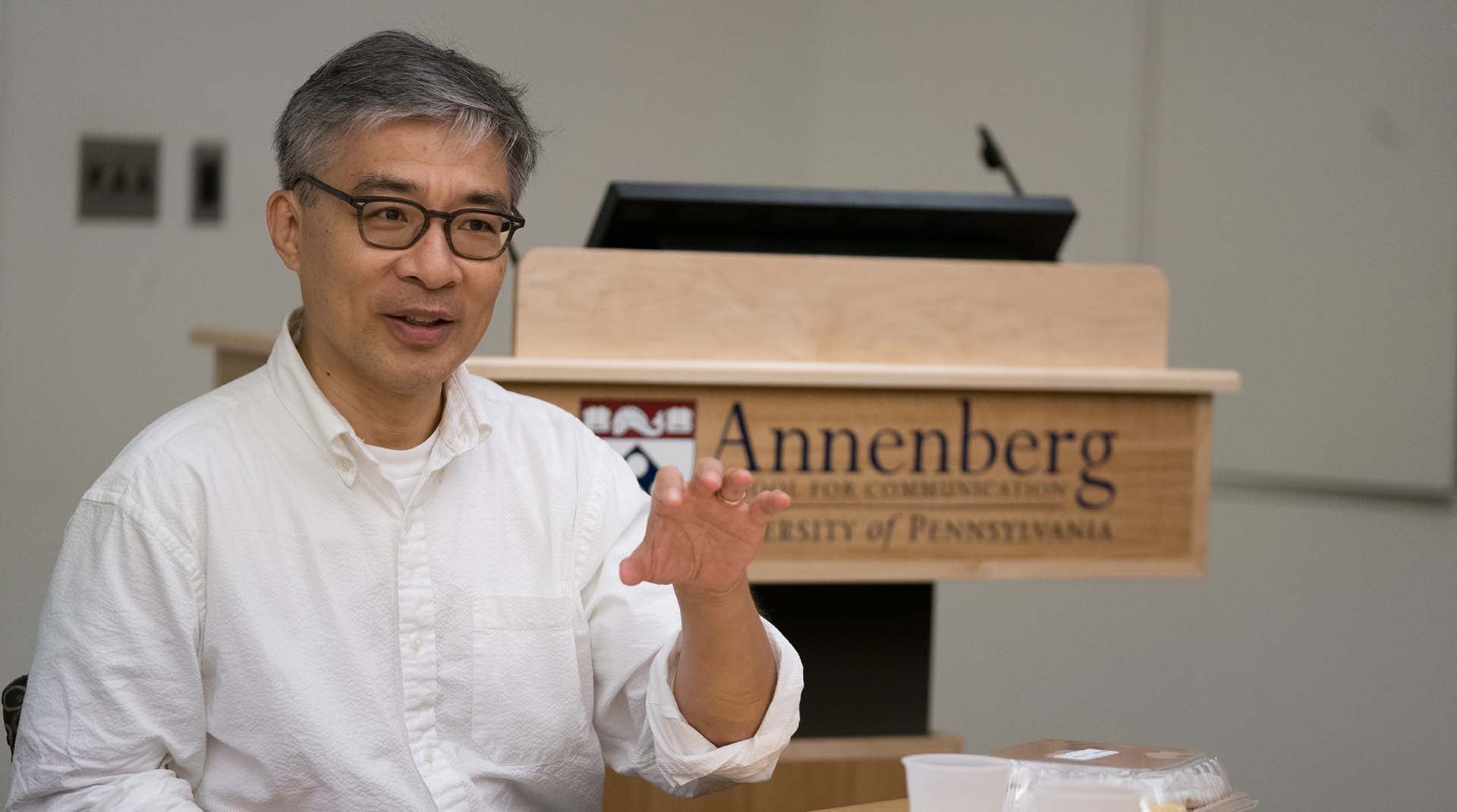
Our Faculty
Our graduate faculty is at the heart of the school. Their innovative work, often in collaboration with students, pushes the field of Communication forward.
Students on Video
Hear from some of the Annenberg School's doctoral students as they talk about their work and what brought them to Annenberg.
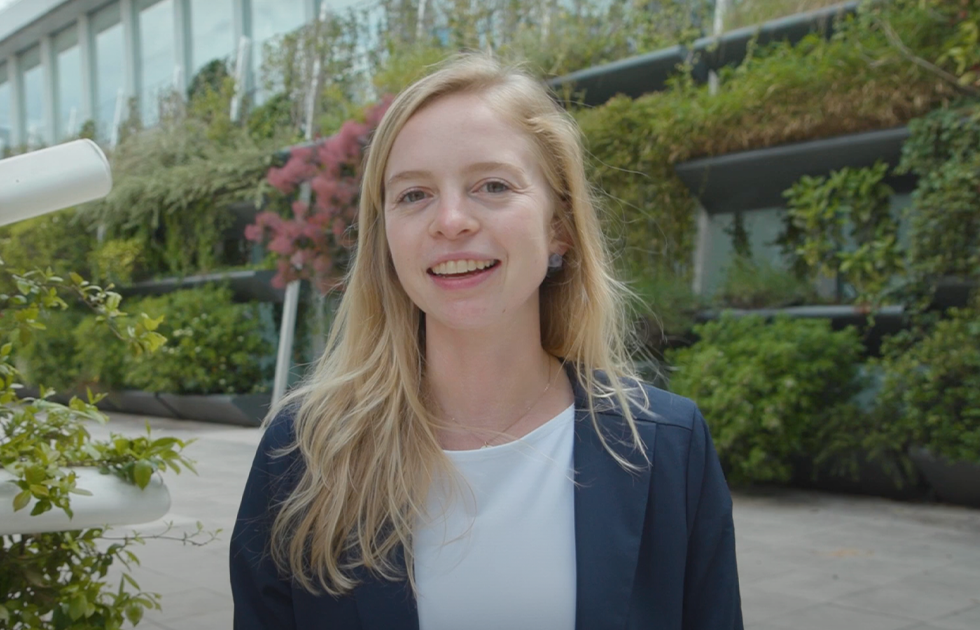
What is it like to be a doctoral student at the International Communication Association annual conference? We followed four students to find out.
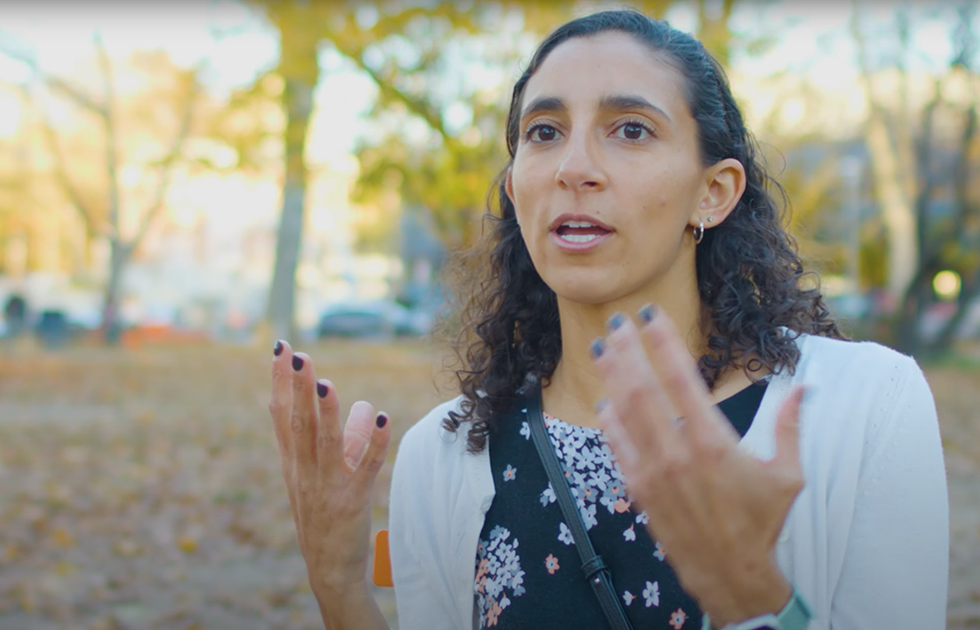
During the early days of the COVID-19 pandemic, doctoral candidate Kelly Diaz used her phone to document the many signs displayed in yards and windows around her West Philadelphia home. She has now collected that body of work into a photo essay .
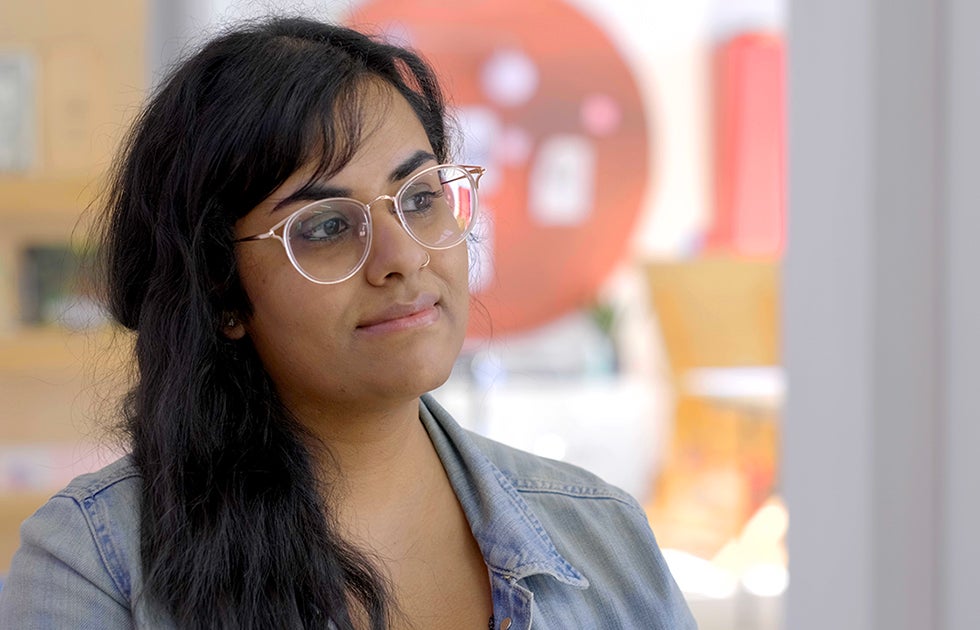
Doctoral Candidate and artist Roopa Vasudevan studies the ways that the everyday technologies shape our daily lives.
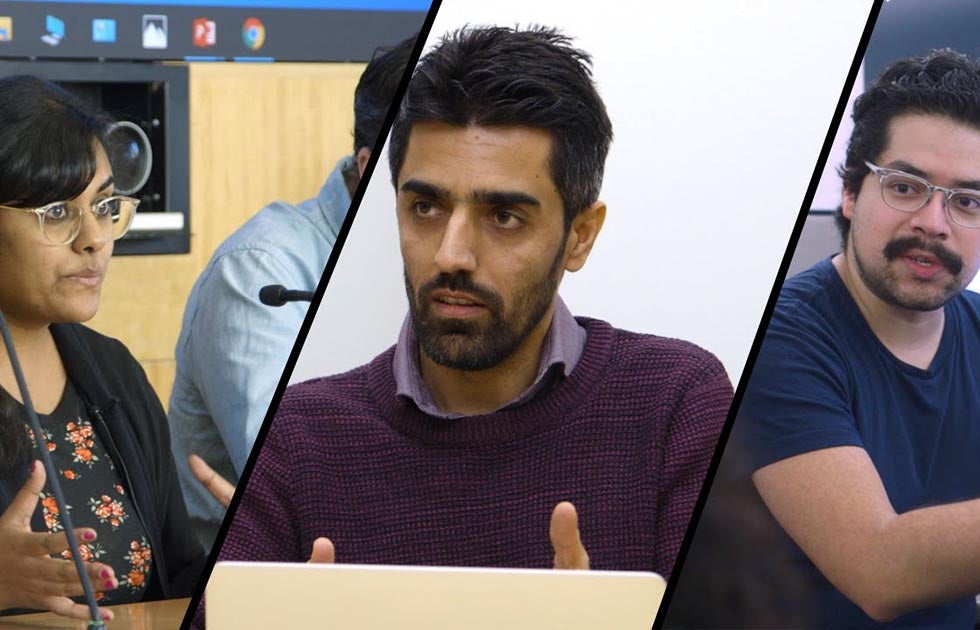
What is it like to be a Ph.D. student? We followed five of our students through their daily activities.
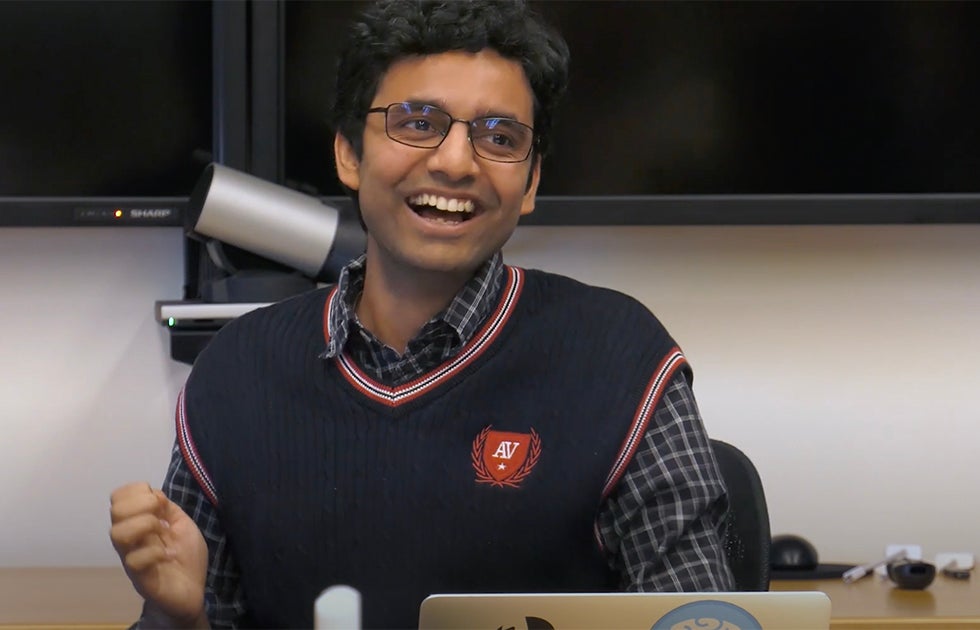
Prateekshit Pandey works with the Communication Neuroscience Lab to study how the brain reacts to humor.
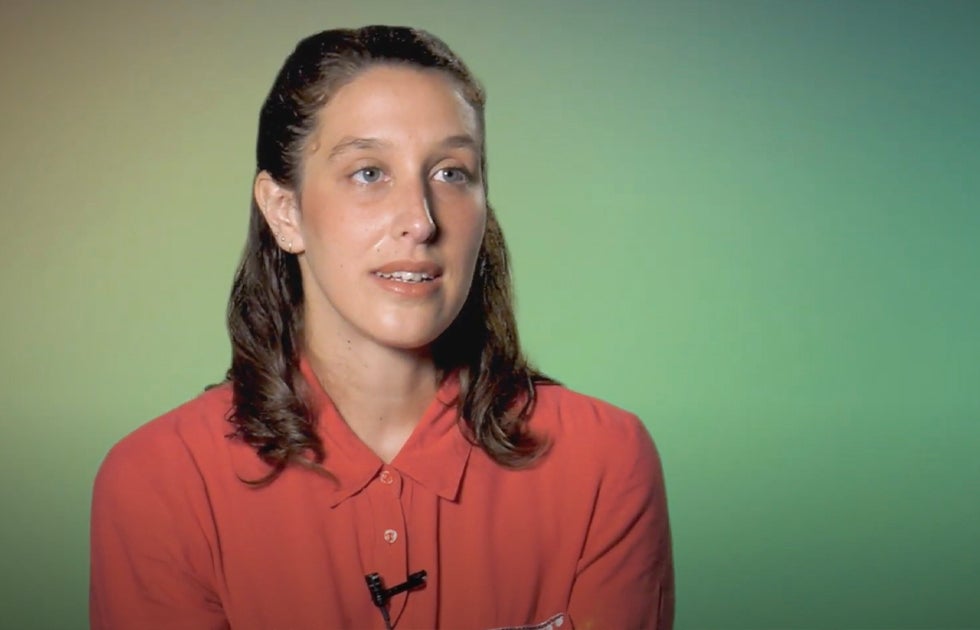
Buenos Aires-native María Celeste Wagner looks at how gender influences credibility in news.
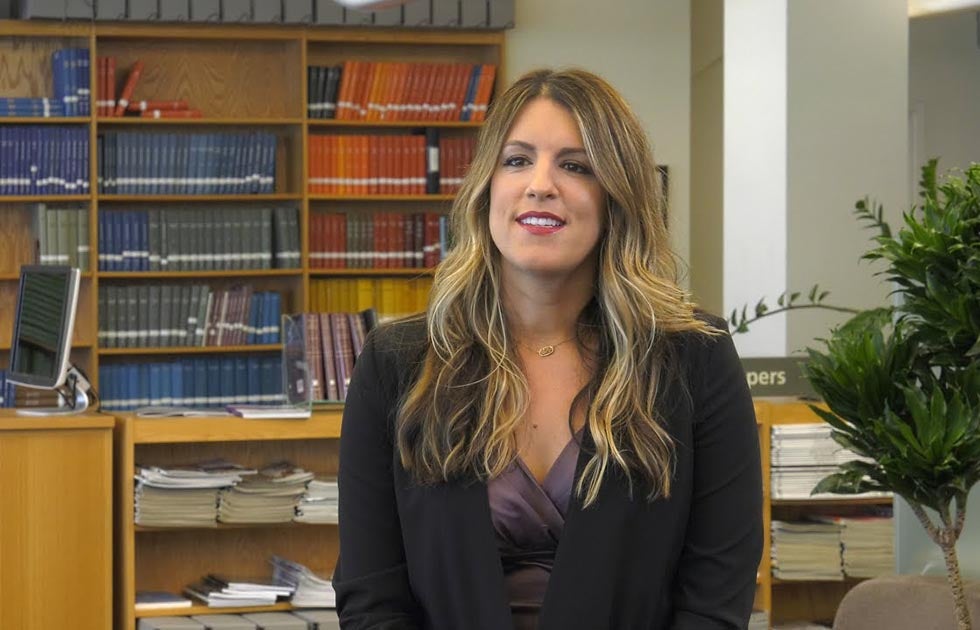
Jennifer Henrichsen studies the way that journalists adopt information security technologies to protect themselves and their sources.
Our Students
Annenberg's doctoral students represent a broad spectrum of interests, methodologies, and backgrounds. Here are just a few of our incredible students.
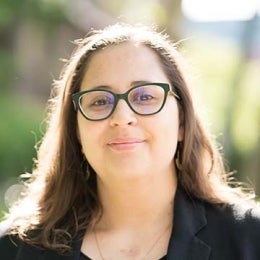
Arlene C. Fernández
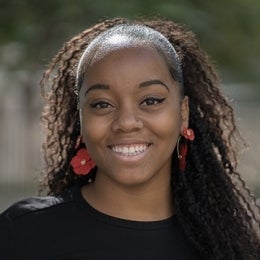
Azsaneé Truss
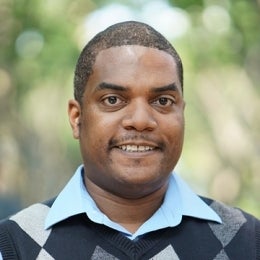
Antoine Haywood
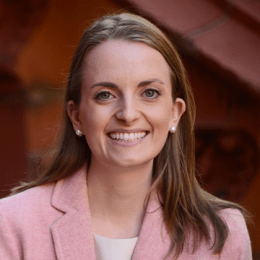
Danielle Clark
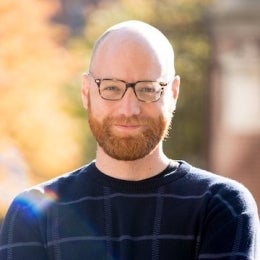
Neil Fasching
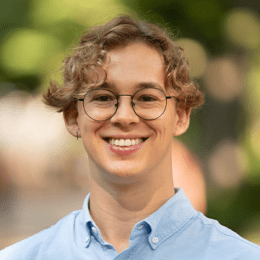
Tom W. Etienne
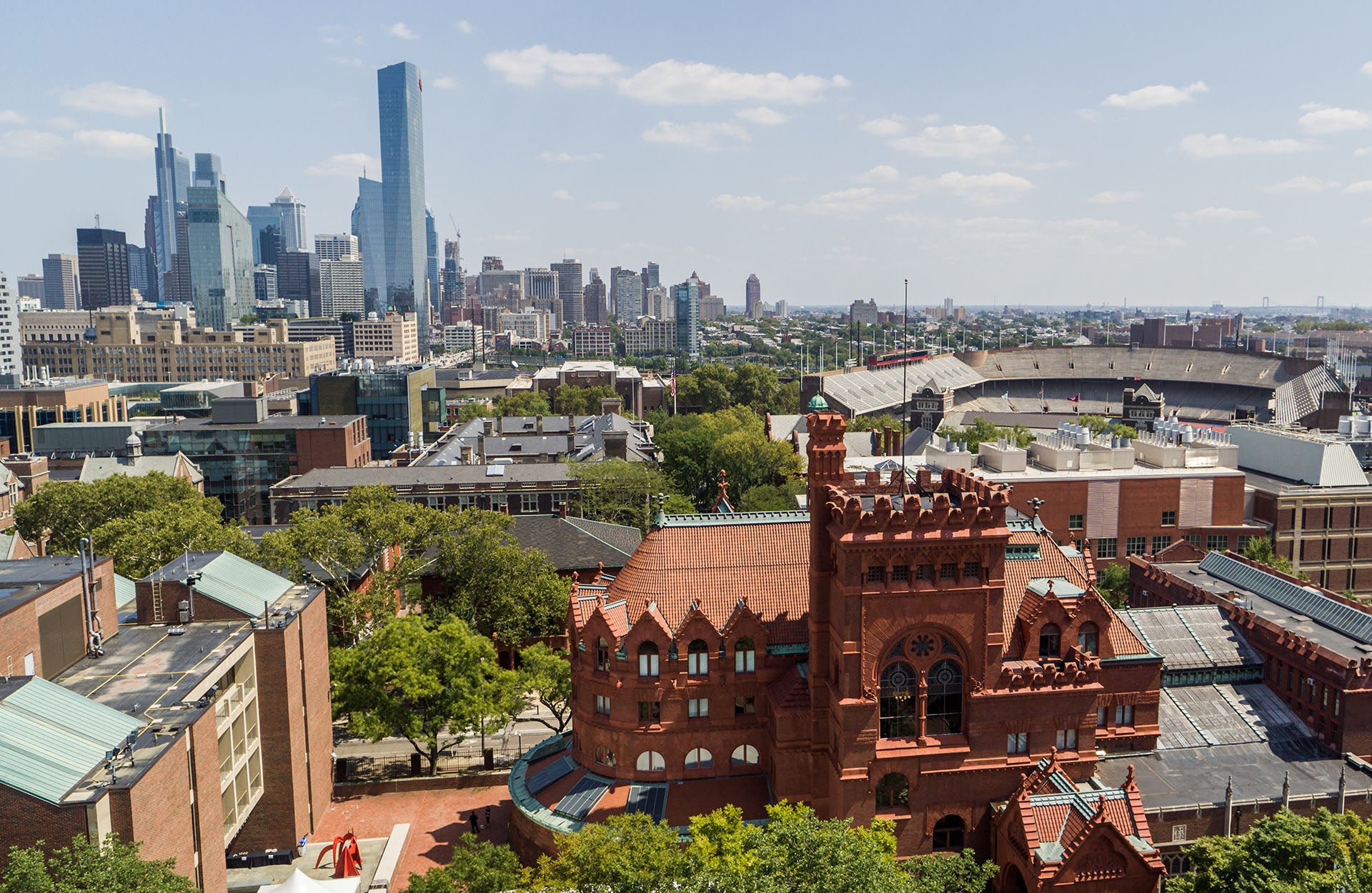
Azsaneé Truss Receives Penn Prize for Excellence in Teaching
Truss, who was a teaching fellow for two Communication courses in 2023, was nominated for the award by University of Pennsylvania students.
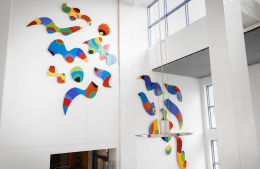
Three Annenberg Doctoral Candidates Awarded 2024 Sachs Program Grants

Kallahan Brown Named 2023 Presidential Ph.D. Fellow
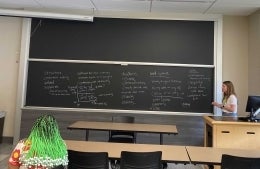
Doctoral Students Collaborate With Philadelphia High School Students on Health Communication Research
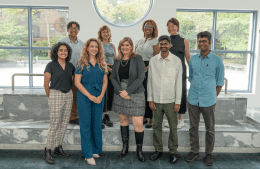
The Annenberg School Welcomes Eight New Ph.D. Students in Its 2023 Cohort

Explore the Program
Learn more about life in the Annenberg Ph.D. program.
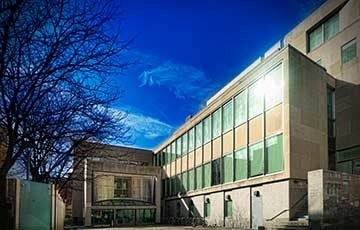
Financial Support
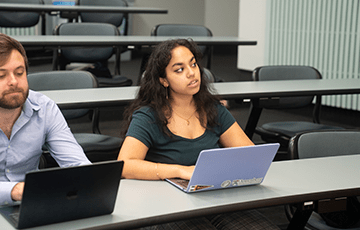
Curriculum & Milestones

Student Life

Applications for 2025-2026 will open by October
More in doctorate in communication.
- SCHOOL OF COMMUNICATION
Should I secure an academic adviser prior to applying?
No. Individual faculty welcome emails from prospective students, but applicants should know that students will be admitted to the program, not to study under specific faculty per se.
Will I be able to choose a faculty adviser outside the core faculty?
Yes. Faculty members beyond the core faculty may be available to advise students in Rhetoric, Media, and Publics. We recommend contacting any such faculty before applying. We also recommend listing any such faculty on your application.
Can I attend part-time? No. We only admit students who can attend full-time.
Can I take courses in the evening, on weekends or during the summer? No. We only admit students who can attend full-time.
Can I start the program during the winter or spring terms rather than in the fall term? No. Because we admit graduate students as a cohort, students can only begin their studies in the fall term.
If I don’t have a MA, can I still be admitted to the doctoral program? Yes. Individuals who wish to study for the doctorate, but do not have a MA should apply to the MA/PHD program. Students admitted to the MA/PHD program complete their MA in Rhetoric, Media, and Publics as part of their preparation for the doctorate.
Is financial assistance available for graduate students? All students who are admitted to our MA/PHD or PHD programs receive financial support packages including both fellowships and teaching assistantships.
How do I apply for financial assistance? No application is necessary. Those who apply for admission to the MA/PHD and PHD programs are automatically considered for funding.
Are international students eligible to receive funding? Yes. Regardless of whether applicants are domestic or international, all who are admitted to either our MA/PHD or PHD program receive funding. To receive funding, international students must demonstrate proficiency in English by providing official transcripts verifying an undergraduate degree from an accredited four-year institution or equivalent, where the language of instruction is English or scoring 100 or higher on the Internet Based TOEFL (IBT) and have ETS send your official scores to the institution code 1565 for The NU Graduate School.
Can international students take the Internet Based TOEFL (IBT) after being admitted to the graduate program? No. To be considered for admission, all international students must take the IBT at least two months prior to submitting their application for admission; the IBT must have been completed no more than two years prior to the intended quarter of entry.
Is the GRE required for application? No. You may still submit GRE scores to Northwestern, however. Applicants should have ETS send their official GRE scores (verbal, quantitative and analytical writing) to the institution code 1565 for The NU Graduate School. We do not require any of the special area tests.
Does the Department of Communication Studies require information to be included with the application that is beyond that required by the Graduate School? Yes. Your GRE scores and writing sample. All supporting documents, except original transcripts and official test scores, may be submitted electronically, via ApplyYourself: application, statement of purpose, letters of recommendation and writing sample.
What is the deadline for application? December 9.
As an international student where can I find the program application?
Rhetoric and Public Culture PhD program is being replaced by a new PhD program in Rhetoric, Media, and Publics. Though this new program has been approved by Northwestern, Northwestern is currently unable to issue F-1 or J-1 documents for the PhD in Rhetoric, Media, and Publics while the program undergoes review by the federal government. In this interim period, we ask students requiring immigration documents to study in the United States to apply to the current Communication Studies: Rhetoric and Public Culture PhD program, which is able to issue F-1 or J-1 documents.
For more information, Contact Us with specific questions about the graduate program in Communication Studies.
- Degree Completion Plans
- Course Guides
- Supplemental Instruction
- IT Helpdesk
- Academic Departments
- Doctoral Degrees
- Communications
- Criminal Justice
- Public Policy
- Strategic Leadership
- Worship Studies
- More Programs >
- Masters Degrees
- Applied Psychology
- Business Administration
- Clinical Mental Health Counseling
- Executive Leadership
- Healthcare Administration
- Political Science
- Public Administration
- Social Work
- Bachelor's Degrees
- Graphic Design
- Information Technology
- Paralegal Studies
- Sports Management
- Associate Degrees
- Christian Counseling
- Creative Writing
- Early Childhood Education
- Information Systems
- Interdisciplinary Studies
- Medical Office Assistant
- STEM Mathematics
- Undergraduate
- Christian Ministry
- Data Networking
- Project Management
- Biblical Studies
- Educational Tech. & Online Instruction
- General Business
- Health Promotion
- Theological Studies
- Curriculum and Instruction
- Instructional Design
- Higher Ed. Administration
- Special Education
- New Programs
- Biblical Counseling (BS)
- Chaplaincy (MA)
- Christian Leadership – Faith-Based Consulting (PhD)
- Educational Research (PhD)
- Fire Administration – Emergency Medical Services (BS)
- Geographic Information Systems – Commercial Logistics (MS)
- Healthcare Law and Compliance (MBA)
- Instructional Design and Technology (EdS)
- Interdisciplinary Research (MA)
- International Relations – Human Rights (MS)
- Philosophy, Politics, and Economics (BS)
- Special Education (EdD)
- Who Are We?
- Our Three A's
- Virtual Tour of Liberty's Campus
- What is a Nonprofit University?
- Why Choose Liberty?
Accreditation
- Top 10 Reasons to Choose Liberty University
- Video Testimonials
- Annual Security Report
- Annual Security Report 2023
- Admission Information
- Getting Started With Liberty
- Admission Process
- Admission FAQs
- Academic Calendar
- Admission Resources
- Common Forms and Documents
- Technical Requirements
- Official Transcript Request Form
- Textbooks and Software
- Transferring to Liberty
- Transfer Students
- Experience Plus – Credit for Life Experience
- Transfer FAQs
- University Transcript Request Links
- Tuition Assistance
- First Responder Discount
- Military Tuition Discount
- Small Business Discount
- Corporate Tuition Assistance
- Corporate Tuition Affiliates
- Financial Basics
- Tuition & Fees
- Payment Plans
- Military Benefits
- Financial Check-In
- Financial Aid
- Financial Aid Process
- Financial Aid FAQs
- Grants & Loans
- Scholarship Opportunities
- Military Homepage
- Military Benefits Guide
- Discount on Tuition
- Doctoral Military Rate
- Veterans Benefits
- Academics and Programs
- Military Programs and Partnerships
- Military Benefits and Scholarships
- Community and Resources
- Top Used Links
- Upcoming Events
- Academic Advising
- Jerry Falwell Library
- Policies and Deadlines
- Liberty University Academic Calendar Online
- Academic Policies
- Information Technology (IT)
- Online Writing Center
- Honor Societies
- Student Advocate Office
- Flames Pass (Student ID)
- Online Student Life
- Office of Disability Accommodation Support
- Commonly Used Forms
- learn.liberty.edu
Online PhD in Communication
Transfer credits, next start date, expand your career opportunities with liberty’s online phd in communication studies.
Communications is a vast field that, at its core, focuses on how humans connect with one another, both verbally and nonverbally. The communications industry is constantly growing and changing as new technologies emerge, so employers need people who are up-to-date on the latest communication theories, methods, and strategies.
If you want to enrich your understanding of human interaction and mass communication, then a PhD in Communication is a good next step in your academic and professional journey. Liberty’s doctoral program focuses primarily on research and theory, allowing you to strengthen and enhance your knowledge of communications.
With a degree as diverse and in-depth as communications, you can gain the skills you need to be a leader in a variety of fields and businesses. Maybe you want to advance in your current career or start your own company. Or perhaps you would like to become a researcher or college professor. Whatever your career goals are, our PhD in Communication can help you make your dreams a reality.
This online program can help deepen your passion for learning and communication. We are excited to partner with you as you continue your research and study in the field of communications.
Why Choose Liberty’s PhD in Communication Online?
Earning a PhD in Communication is a great way to advance in your current career or to enter a new field altogether. No matter what your goals are, our PhD in Communication can help provide you with a well-respected credential and research skills that are applicable to a host of professional settings, both in the public and private sector. For instance, you could teach undergraduate or graduate courses at a collegiate institution, carry out independent research, or work for a variety of businesses, agencies, and nonprofits.
As a doctoral student, you will study under professors who are experts in communication. Drawing on years of real-world experience, they can impart knowledge about the leading theories and praxis of communication – further preparing you to become an expert in the field.
At Liberty, you can become better equipped to achieve your academic and career goals — you’ll also be fostered in biblical principles and trained to be a Champion for Christ . Our professors can help you learn how to integrate these principles into the workplace and challenge you to follow God’s calling on your life.
We believe that you can earn your degree without putting your life on hold. That’s why we’ve designed our doctoral program to be completely online, meaning you won’t have to worry about attending on-campus classes. That way, you can complete your education while still focusing on your family and your job.
You already have a high level of mastery in the field of communications. But if you are looking for a terminal degree or a degree that allows you to mix theory and innovation, then our PhD in Communication is the program for you.
Military Tuition Discount We want to help you find the doctoral degree you want — at a price you’ve earned. As a thank-you for your military service, Liberty University offers eligible current and former service members like you or your spouse multiple pathways to earn a doctoral degree for only $300/credit hour . Find out how you can take advantage of this unique opportunity as you work towards your goal of reaching the pinnacle of your profession — for less.
What Will You Learn in Our Communications PhD Online Degree Program?
Our PhD in Communication can give you insight into the foundational principles that are behind successful communication campaigns. This program teaches invaluable knowledge and skills that can be applied to a variety of real-world roles, whether you want to work for a business, a nonprofit organization, or an institution of higher education.
With Liberty’s doctoral program, you will explore the “how” and “why” behind everyday practices used in the communications field. As well as studying various communication theories, you’ll complete practical, hands-on projects that can give you real-world practice with different communication strategies and scenarios, such as crisis communications. In addition, you can learn how to conduct in-depth research, how to assess data properly, and how to tell your company’s story more effectively than ever before.
With this degree, you will complete several courses centered around research and writing. You can sharpen your understanding of various industry techniques, such as insight tools and data gathering, to translate research and theory into effective field practice. Furthermore, our program can help develop your critical thinking and problem-solving skills through the use of solution-oriented literature.
Our professors will give you an in-depth look at how to effectively lead a communications team, how to use techniques for social media and video storytelling, and how to keep up with the ever-changing world of digital media. This program covers a diverse array of topics in the areas of both research and professional application, allowing you to gain a broad, in-depth skill set that can be applied to many jobs.
For instance, you’ll complete courses on qualitative research methods, donor relations, audience analysis, and contemporary issues in content communication. Since the field of communications covers a host of industries, your classes will draw on many disciplines, including business, education, and digital media studies. At the end of your online doctoral degree in communications, you will write and present a dissertation based on your own original research.
If you want to conduct in-depth research in the field of communications, our PhD program is for you. Join us and be equipped to enter a wide variety of industries and careers.
View the Degree Completion Plan and check out the featured courses of this degree below.
Featured Courses
- DIGI 720 – Qualitative Data Analysis
- DIGI 825 – Seminar: From Digital Analytics to Communication Action
- DIGI 835 – Current Topics in Content Communication
- DIGI 845 – Communicating Research Data
Highlights of Our Online Communication PhD Program
- We are recognized by multiple institutions for our academic quality, affordability, and accessibility . Our commitment to excellence also helped us rank in the top 10% of Niche.com’s best online schools in America . Earning your online PhD in Communication degree from a nonprofit university with this kind of recognition can help set you apart from others in your field.
- Your success is our success, which is why we are committed to providing quality academics at an affordable tuition rate. While other colleges are increasing their tuition, we have frozen tuition rates for the majority of our undergraduate, graduate, and doctoral programs for the past 9 years — and counting.
- Our faculty members have years of real-world experience in the field of communications. Under their instruction, you can learn practical skills that can further your career.
- At Liberty, you can get a PhD in Communication in as little as 3 years.
PhD in Mass Communication Online Degree Information
- This program falls under our School of Communication and the Arts .
- Download and review the Degree Completion Plan .
- View the Graduate Communication and the Arts Course Guides (login required) .
Apply Now Request Info
What Can You Do with a PhD in Mass Communications?
As a graduate of our PhD in Communication, you can become more qualified to pursue a variety of positions including:
- Advertising/public relations executive
- Chief customer experience officer
- Communications executive
- Director of online sales and services
- Research manager
- Social media executive
- University administrator
- University professor
- Vice president of customer satisfaction
Admission Requirements for the Doctorate in Communication Online
A regionally or nationally accredited master’s degree with a 3.0 or above GPA is required for admission in good standing. Please visit our admission requirements page for more detailed admissions-related information.
All applicants must submit the following:
- Admission application
- Application fee*
- Official college transcripts
- Proof of English proficiency (for applicants whose native language is other than English)
* There is no upfront application fee; however, a deferred $50 application fee will be assessed during Financial Check-In. This fee is waived for qualifying service members, veterans, and military spouses – documentation verifying military status is required.
*Some restrictions may occur for this promotion to apply. This promotion also excludes active faculty and staff, military, Non-Degree Seeking, DGIA, Continuing Education, WSB, and Certificates.
Apply FREE This Week*
Other programs you may be interested in
Doctor of Business Administration (DBA)
Doctor of Business Administration: Marketing
Next Start Date: May 13, 2024
Doctor of Education (EDD)
Curriculum and Instruction: General
Doctor of Philosophy (PHD)
Higher Education Administration
Doctor of Strategic Leadership (DSL)
Doctor of Strategic Leadership
Looking for a different program.
Almost there! How may we contact you?
Our Admissions team is ready to answer any additional questions you may have.
By submitting contact information through this form, I agree that Liberty University and its affiliates may call and/or text me about its offerings by any phone number I have provided and may provide in the future, including any wireless number, using automated technology.
Message and data rates may apply. For additional information, text HELP to 49595 or 49596. You may opt-out at any time by sending STOP to 49595 or 49596. Visit for Terms & Conditions and Privacy Policy.
- Get My Results
Discover what Liberty can do for you!
Get your personalized guide on how to start with liberty..
In 60 seconds or less!
Become a Champion for Christ
Estimate your Cost
Cost Per Credit Hour Per Semester for 7 to 15 Credits* Per Semester for 9 to 15 Credits* i Visit the Tuition and Financing page for more information.
Additional program fees may apply. See program page for details.
Disclaimer: This calculator is a tool that provides a rough estimate of the total cost of tuition, and should not be relied upon to determine overall costs, as pricing may vary by program and tuition/fees are subject to change. Estimates are not final or binding, and do not include potential financial aid eligibility.
Your Cost Estimate:
View All Tuition & Fees Go Back
For eligibility requirements for military discounts at the doctoral level, please review the online benefits page .
Request Information
Learn More About Liberty University Online
You will be automatically taken to the application once you submit your request for information
Message and data rates may apply. For additional information, text HELP to 49595 or 49596. You may opt-out at any time by sending STOP to 49595 or 49596. Visit for Terms & Conditions and Privacy Policy .
You have to have a lot of self-motivation and self-discipline when you are going to school online, but the amazing thing is at Liberty you do not need to do it by yourself. You really do have resources like someone who is going to school on campus.
– Janae Fleming ’15, B.S. in Education

IMAGES
VIDEO